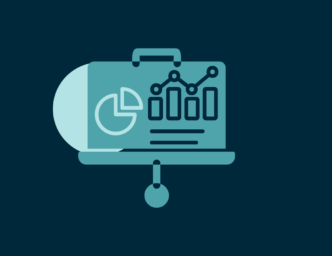Data-driven decision-making plays a pivotal role in business, yet the volume of data adds a layer of complexity.
That’s where data engineers and data analysts come in! These experts work to convert raw data into actionable insights, and while both roles are indispensable for effective data utilization, they vary in terms of responsibilities and skills.
Wondering which one you should hire, or which role will have the largest impact on your business? Keep reading to explore each position in depth.
RELATED: 7 IT Roles to Help Your Big Data Capabilities
What Does a Data Engineer Do?
Data engineers are the architects of smart data ecosystems.
They’re responsible for building, maintaining, and operating data pipelines and infrastructure. The tools and systems they design can collect, store, and process large data sets.
Data engineers are involved in the early stages of data processing. It’s a highly technical position that focuses on data management.
Key responsibilities of a data engineer include:
- Designing and constructing data pipelines and architectures
- Managing and optimizing data storage solutions, like databases and data warehouses
- Ensuring the integrity, availability, and security of data
- Implementing strategies to improve data reliability and quality
- Collaborating with data scientists and analysts to provide the data they need in a usable format
Skilled data engineers typically have a background in software engineering and are proficient in programming languages like Python, Java, and SQL.
What Does a Data Analyst Do?
Data analysts use data to inform business decisions.
They analyze data to extract insights that can be used to improve business processes or make better decisions.
Data analysts work with data engineers to access and understand the data and use their analytical skills to identify trends, patterns, and relationships in the data. They’re also responsible for communicating their findings to decision-makers in a concise and actionable way.
Typical tasks for a data analyst include:
- Analyzing data sets to identify trends, patterns, and insights
- Creating visualizations and reports to communicate findings
- Collaborating with different departments to understand data needs and provide actionable recommendations
- Utilizing statistical tools and techniques to interpret data
- Ensuring data accuracy and consistency in analysis
Data analysts often have a background in statistics, mathematics, or business, with skills in analytical tools like Excel and SQL. They sometimes use data visualization software like Tableau or PowerBI.
Data Engineer vs Data Analyst: Similarities and Differences
Overall, data engineers are more technical than data analysts. They build and manage the underlying infrastructure that supports data analysis.
Data analysts are more business oriented. They use data to provide insights and solve business problems.
Both data engineers and analysts play vital roles in the success of data-driven organizations. Working together ensures the available data is collected, stored, processed, and analyzed to inform business decisions and improve company bottom lines!
Choosing the Right Role for Your Business Needs
Every business can benefit from both data engineers and data analysts. The deciding factor about which expert to hire next depends on the size of your business, the amount of data you collect, and your business goals. Consider the questions when choosing a data engineer vs. a data analyst:
Do You Need Data Infrastructure and Pipelines? A data engineer can build data pipelines and infrastructure to deliver the correct data in the right place. They design, develop, and deploy data pipelines and have the experience to troubleshoot and maintain data infrastructure.
Do You Need Actionable Insights? Hiring a data analyst is the better choice if you want someone skilled in extracting insights. Data analysts identify patterns, create visualizations, and then communicate their findings to inform decision-making.
Do You Need Someone with Strong Programming and Data Warehousing Skills? Data engineers have strong programming, data warehousing, and data modeling skills. They create the infrastructure that delivers raw data to be analyzed and used.
Do You Need Someone with a Strong Business Understanding? Data analysts know how to apply the insights they get from data. They use and analyze data to help the business achieve its goals. Businesses just starting to collect and analyze data may first hire a data analyst. A data engineer can create and manage the data infrastructure as the organization’s data needs grow.
Harness the Power of Data with the Right Hire
Companies today have access to more data than ever before in history. If the data is used well, it can provide insights that drive business success.
Finding data experts with the experience and knowledge to improve business results can be challenging. But at Insight Global, we make hiring easy. Connect with our team today if you want the right professional to leverage your company’s data.
Hire Data Experts with Insight Global
Questions? Call us toll-free: 855-485-8853


 by Anna Morelock
by Anna Morelock



 by Alexandra Woodford
by Alexandra Woodford 

